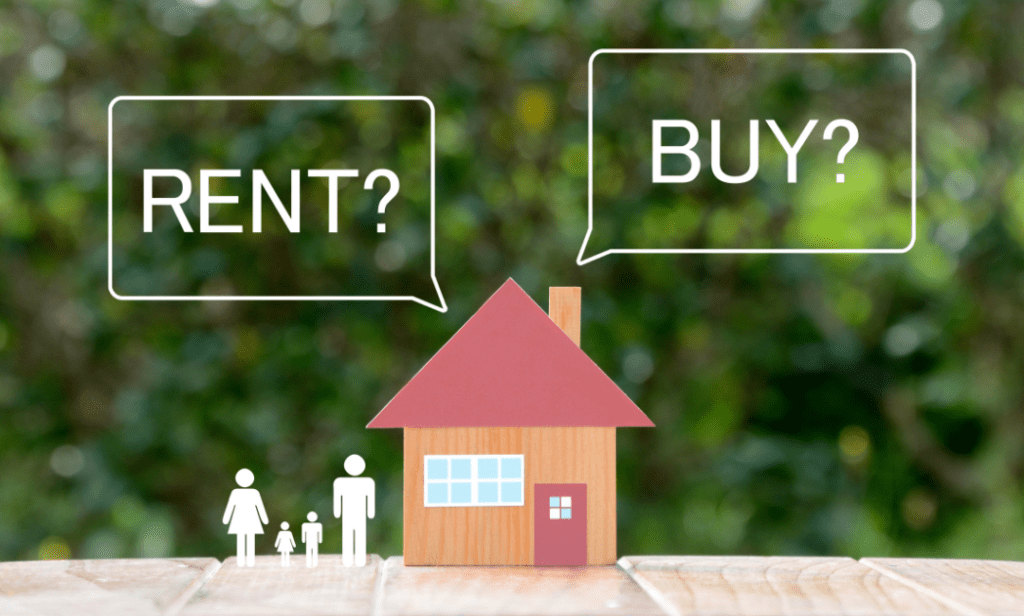High Cost of Cold Feet – The Consequences of Withdrawing from a Home Purchase
04/08/24

When housing markets begin to cool after record highs, some homebuyers get cold feet. Imagine you buy a home for $1.2 million. When it comes time to close after you have signed your purchase agreement, you notice a comparable home down the street sells for $855,000. What happens when a buyer backs out of a real estate deal?
Some homebuyers choose to walk away as the closing day approaches, despite agreeing to purchase the property. Another common scenario occurs when a homebuyer backs out after overbidding in a hot market and going over budget. Once it comes time to close, the bank completes an appraisal and refuses the entire mortgage amount. The homebuyers need to come up with hundreds of thousands of dollars to close. They walk away because they don’t have the money, despite signing an agreement to purchase.
No matter the scenario, walking away at closing after you sign a purchase agreement can have significant legal and financial consequences.
When you back out of the deal, it will cost you. You instantly forfeit the deposit you submitted with your offer. You are also at risk of being sued by the seller for money they have lost on the sale of their home. Understanding the purchase agreement and adding conditions to protect you from unforeseen circumstances is essential.
- Understanding your Agreement of Purchase and Sale
- Navigating the Emotional and Psychological Terrain of Real Estate Transactions
- The Impact of Buyer-Seller Dynamics
- Are There Legal Ways to Back Out of a Real Estate Deal?
- The Risks of Backing Out of a Deal at Closing
- How to Avoid the Risks of Backing Out at Closing?
- What Happens If the Sellers Back Out?
Understanding your Agreement of Purchase and Sale

An Agreement of Purchase and Sale is a firm and binding deal that allows the buyer and seller to proceed with the sale. It outlines the terms and conditions of your home purchase. As a legal agreement, backing out comes with serious consequences.
Once the buyer and seller sign a purchase agreement, it becomes legally binding. Typically, the buyer provides a deposit between one and three percent of the purchase price to show the seller that they will honour their agreement and complete the purchase. Backing out of the deal after signing the contract and paying the deposit means you do not get that money back.
Navigating the Emotional and Psychological Terrain of Real Estate Transactions
Beyond the significant financial commitments, buying or selling a home is an emotionally charged journey that can profoundly impact individuals and families. Recognizing and addressing these emotional and psychological aspects is crucial for navigating real estate transactions successfully.
For Buyers: The Weight of Decision-Making
For many buyers, purchasing a home is not just about acquiring property; it’s about finding a space for future memories and milestones. The pressure of making the “right” decision can be overwhelming, especially in competitive markets where quick decisions are often necessary. This pressure is compounded when buyers consider backing out of a deal. Feelings of anxiety, guilt, and indecision are common, as buyers weigh the financial implications against the pursuit of what they believe to be their ideal home. Buyers need to acknowledge these feelings, seeking support through advisors, family, or counselling to navigate these waters.
For Sellers: Emotional Ties and Moving On
Sellers, on the other hand, may face emotional challenges related to letting go of a home filled with memories. The process of selling can feel like closing a significant chapter in one’s life, leading to feelings of sadness, loss, or even grief. When a deal falls through, these emotions are intensified by uncertainty and frustration. Sellers must manage these feelings while preparing for the next steps, whether relisting the property or considering other offers. Emotional resilience is key, often requiring sellers to find strategies for emotional detachment from the property to make objective decisions about their next moves.
The Impact of Buyer-Seller Dynamics

The interaction between buyers and sellers can also introduce a layer of emotional complexity. Negotiations, especially in a tense or competitive market, can become adversarial, leading to stress and anxiety on both sides. A sense of personal investment in the outcome can make compromise more challenging, with both parties feeling vulnerable to the actions and decisions of the other.
Strategies for Managing Emotional and Psychological Impacts
- Open Communication: Maintaining open and honest communication between all parties can help manage expectations and reduce emotional tension.
- Professional Support: Real estate agents, counsellors, and financial advisors can provide valuable support, offering an outside perspective that can help individuals navigate their emotional responses more effectively.
- Self-Care: Recognizing the stress of real estate transactions, individuals should prioritize self-care, ensuring they have outlets to relieve stress and process their emotions.
- Setting Realistic Expectations: Understanding that the real estate process can be unpredictable and that flexibility may be required can help mitigate disappointment and frustration.
Are There Legal Ways to Back Out of a Real Estate Deal?

There are a few legal ways to back out of a deal. The first is if the sale was conditional and the conditions were not met. It could result from a significant issue in the home inspection, a low appraisal, or the inability of the buyer to sell their current home. Regardless of the reason, the deal dies automatically if the conditions are not fulfilled.
Additionally, an agreement could become null and void for reasons outside the contract’s conditions. Common issues that can end a deal are a lien on the home, substantial damage to the property before closing, or if the buyer can prove that the seller knowingly misrepresented the property in a significant way (however, misrepresentation can be hard to prove in court).
The Risks of Backing Out of a Deal at Closing
Buyer’s remorse is not part of real estate. Once the buyer and seller have signed the purchase agreement and the conditions have been satisfied, both parties must abide by the contract. There is typically not much leeway to cancel a real estate purchase.
Sellers may feel that they overpaid or their financial circumstances have changed, but those reasons may not justify the potential consequences of walking away.
If the buyer walks away, they may forfeit their deposit and could be sued by the seller for loss in the value of their property on resale.
If the seller eventually sells their home for a lower price, they may sue for the price difference. Let’s say there was an agreement to purchase the house for $850,000. The closing day comes, and the buyers back out. The home then goes back on the market. The best offer is $700,000. The home buyers that backed out on closing day now must make up the money the sellers lost. In this case, that is $150,000.
This nightmare scenario has played out. In Gamoff v. Hu, the buyers lost their $30,000 deposit, and they were ordered by the Ontario Superior Court of Justice to pay $470,000 in the lost value after they backed out.
You may also be responsible for the seller’s legal fees, mortgage carrying costs, and any other losses the seller suffered.
How to Avoid the Risks of Backing Out at Closing?

With the help of legal representation, there are a few things that you can do to protect yourself from these circumstances. Consult with your lawyer before signing an Agreement of Purchase and Sale to determine if there are terms to add that will protect you as the buyer.
Setting the right contingencies within the contract is the best way to protect yourself from some of the most common issues home buyers encounter.
With a low inventory and rising competition for homes across Canada, it may be tempting to waive any conditions, especially when competing against multiple offers. Discuss the situation with your lawyer, consult a financial advisor and consider getting a mortgage pre-approval to help ensure that you add the right conditions to your Agreement of Purchase and Sale before signing on the dotted line.
What Happens If the Sellers Back Out?
Like a homebuyer, a home seller who backs out of a purchase agreement can face legal consequences for breaching the contract. Several ramifications could transpire, such as a buyer suing for damages plus the property. However, the typical conclusion will be a court ordering the seller to sign over a deed to the buyer and complete the sale.
Of course, there are many reasons as to why sellers might choose to renege on a deal:
- Sellers have come across unexpected personal emergencies.
- Household factors, such as an overly emotional attachment to the home.
- Buyers are difficult, make too many demands, or have violated contract terms.
- A higher bidder wants to buy the property at a much higher price.
For the most part, the common reason is that the sellers have trouble finding a new home. Perhaps the house sold faster than the seller expected, or a new place has been challenging to identify because property prices are too high and the sellers cannot find another home in time. Remember, Canadian real estate prices have not fallen below pre-pandemic levels, and depending on your location, home valuations could be much higher than they were a year ago.
In minor instances, the buyer might have defrauded the seller.
Some present the case that sellers could convince buyers to walk away from the deal by refraining from renegotiating after a home inspection. Approximately half of all real estate agreements are estimated to have an inspection contingency. Since many of these services will likely uncover a defect, the sellers might choose not to modify the agreement.
To avert a legal and financial disaster that could cripple sellers’ bank accounts, real estate agents and legal experts recommend inserting contingencies inside the agreement that can protect either the buyer or seller’s needs (or both).
Industry experts purport that the other option is that a seller could be released from the agreement if the buyer consents to this request. You can explain the reason for your decision and reach a conclusion without the courts or additional financial penalties.
Nobody will ever argue that buying and selling a detached house, townhome, or condo is a daunting task. It can be overwhelming, especially in a climate of high inflation, rocketing borrowing costs, and an anemic economy. Therefore, it is imperative to work closely with a real estate attorney and realtor to ensure that every avenue has been explored, personal finances have been calculated, and all legal corners have been considered.
The Smith Proulx Real Estate Team has been serving buyers and sellers in the Toronto High Park community with distinction and has the connections you need to list or buy your next home with confidence.
Talk to us before you signing that deal!
Our experience in the Toronto real estate market gives us the advantage and strength to help you buy or sell your home with confidence.



